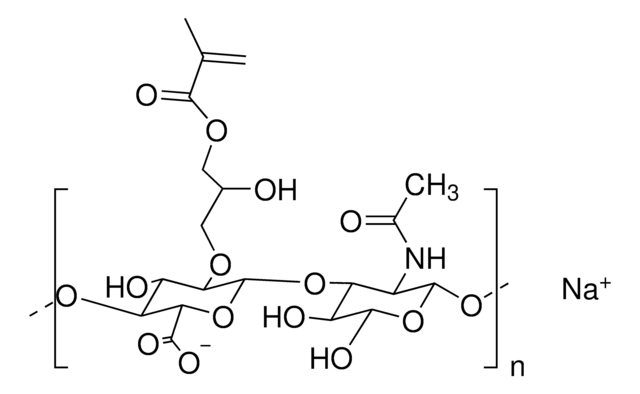914800
Hyaluronic acid methacrylate
Degree of substitution: 10% - 30%, Mw 170,000-250,000
Synonyme(s) :
HA MA, HA methacrlate, Hyaluronic acid MA, Hyaluronic acid methacrlate high mol. weight
About This Item
Produits recommandés
Niveau de qualité
Description
NMR: Conforms to structure
Forme
(powder or chunk(s) or fibers)
Poids mol.
Mw 170,000-250,000
Couleur
white to off-white
Température de stockage
2-8°C
Catégories apparentées
Application
Code de la classe de stockage
11 - Combustible Solids
Classe de danger pour l'eau (WGK)
WGK 3
Point d'éclair (°F)
Not applicable
Point d'éclair (°C)
Not applicable
Certificats d'analyse (COA)
Recherchez un Certificats d'analyse (COA) en saisissant le numéro de lot du produit. Les numéros de lot figurent sur l'étiquette du produit après les mots "Lot" ou "Batch".
Déjà en possession de ce produit ?
Retrouvez la documentation relative aux produits que vous avez récemment achetés dans la Bibliothèque de documents.
Articles
Engineered ECMs enhance immune therapy in cancer treatment by supporting cells and tissues and modulating immune response. They improve immune cell maturation, expansion, and regulation through biomaterial manipulation, acting as frameworks or carriers for enhanced tumor immunotherapy.
Notre équipe de scientifiques dispose d'une expérience dans tous les secteurs de la recherche, notamment en sciences de la vie, science des matériaux, synthèse chimique, chromatographie, analyse et dans de nombreux autres domaines..
Contacter notre Service technique




